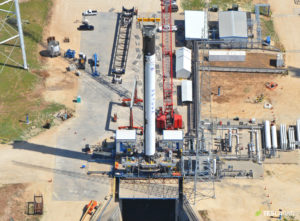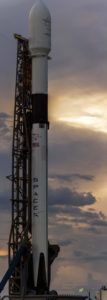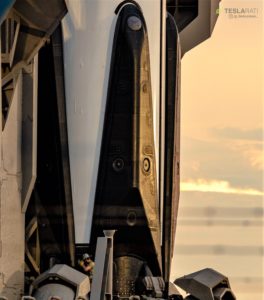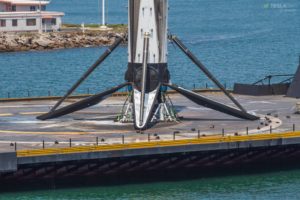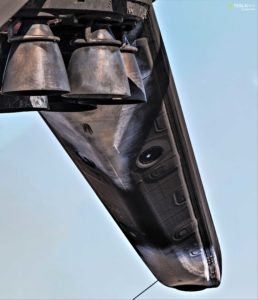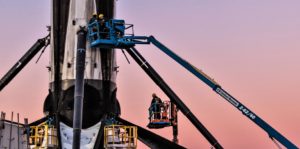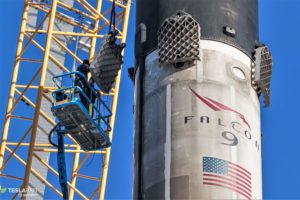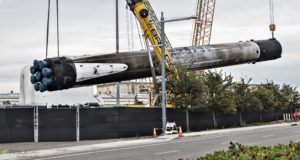
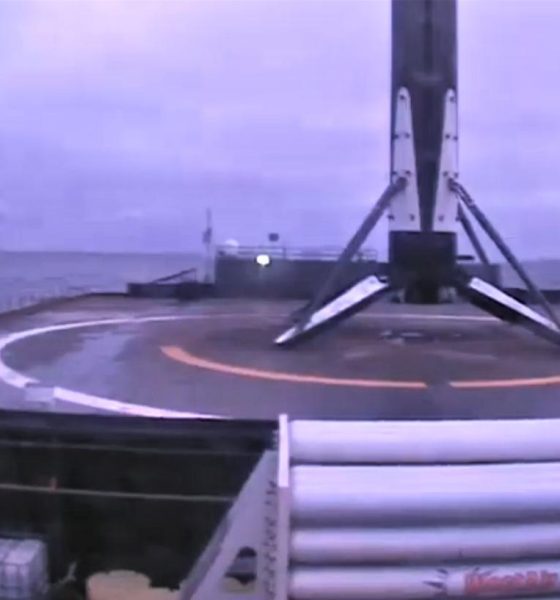
News
SpaceX’s first Falcon 9 landing of 2019 foreshadows rapid rocket fleet growth
Despite an unplanned landing anomaly that foiled SpaceX’s last Falcon 9 recovery attempt, the company’s engineers and technicians have pulled off another successful launch and landing of Falcon 9 – the 33rd for the rocket family – and the first of the new year.
After helping place Iridium’s 8th and final set of NEXT satellites into a parking orbit, Falcon 9 B1049 landed aboard drone ship Just Read The Instructions approximately 7 minutes after liftoff, marking the Block 5 booster’s second successful mission in just under four months. As of now, all but one of SpaceX’s flight-ready Falcon 9 boosters have now performed two or three orbital-class launches and are quickly becoming a truly reusable fleet of rockets.
Webcast of Falcon 9 launch to complete the @IridiumComm NEXT constellation is now live → https://t.co/gtC39uBC7z pic.twitter.com/lU3TwSeCbz
— SpaceX (@SpaceX) January 11, 2019
Throughout the second half of 2018, SpaceX gradually built, tested, launched, and relaunched a growing fleet of Falcon 9 Block 5 boosters, the first of which debuted in May. Including new boosters that have arrived at their launch pads but have yet to launch, SpaceX’s skilled production and testing team managed to ship, test, and deliver an impressive 1 to 1.5 Falcon 9 boosters, 1-2 upper stages, and 3-4 payload fairing halves on average each month. Thanks to Falcon 9 Block 5’s increasingly exceptional reusability, SpaceX does not have to outproduce other companies and national space programs to dramatically out-launch them, exemplifed by the fact that SpaceX alone was able to launch more orbital missions than the combined output of every company and country aside from China.
As more Falcon 9 and Falcon Heavy Block 5 booster are introduced into SpaceX’s growing fleet, the company’s many distinct advantages of direct and indirect competitors should come more and more into play and be increasingly difficult to avoid or ignore. As of today, a fairly incredible number of additional new Falcon boosters are already in their testing and delivery phases, a number that ignores the four (or five) flight-proven boosters and two unflown Falcons known to already be at or ready to ship to launch sites.
- SpaceX’s second Falcon 9 Block 5 booster was spied by an aerial photographer in Texas, April 17. (Aero Photo)
- Falcon 9 Block 5 will be absolutely critical to the success (and even the basic completion) of Starlink. (Tom Cross)
- The second Block 5 booster, B1047, debuted at LC-40 on July 21. (Tom Cross)
- SpaceX’s third Falcon 9 Block 5 booster successfully returned to Port of Los Angeles aboard drone ship Just Read The Instructions (JRTI) on July 27th. (Pauline Acalin)
- It’s unclear what exactly causes it, but Falcon 9 Block 5’s newly heat-shielded legs turn a rather bright white after being scorched during booster landings. (Pauline Acalin)
- Falcon 9 B1046.3. (Pauline Acalin)
- SpaceX technicians remove Falcon 9 B1046’s titanium grid fins after its historic third launch and landing, December 2018. (Teslarati – Pauline Acalin)
- Falcon 9 B1046 became the first SpaceX booster to launch three separate times in early-December 2018. (Pauline Acalin)
Just for Falcon Heavy’s second and third launches (NET March and April), SpaceX will deliver another two boosters (one side and one center) to Florida within the next ~6 weeks and will likely ship, test, and deliver another two or three new Falcon 9 boosters in the first half of 2019 for commercial missions and two crewed Crew Dragon launches scheduled for the second half of the year. Although Falcon Heavy’s new side boosters will likely remain side boosters for both of the rocket’s next missions, that should mean that they will be free enter the single-stick Falcon 9 fleet sometime in H2 2019, as will the three new boosters assigned to Crew Dragon this year. Falcon Heavy’s center core will remain dedicated to Falcon Heavy launches as a result of the extensive modifications necessary to support triple the thrust of a normal Falcon 9.
Regardless, this ultimately means that SpaceX’s reusable Falcon fleet could feature as many as 12-15 boosters capable of something like 5-10 additional launches each by the second half of fourth quarter of 2019. At that point, SpaceX might have enough experience with Block 5 and enough flight-proven boosters to plausibly begin a revolutionary shift in how commercial launches are done. With far more boosters available than SpaceX has payloads to launch, multiple flight-ready Block 5 rockets will inevitably stack up at or around the company’s three launch pads and surrounding integration and refurbishment facilities.
Liftoff of Iridium-8 from Vandenberg AFB. Gorgeous morning to end a beautiful launch campaign. 🚀 pic.twitter.com/RZPRRV9i5t
— Pauline Acalin (@w00ki33) January 11, 2019
Instead of the current process of launch where boosters are dedicated to certain missions in fairly iron-clad terms, SpaceX could conceivably treat its launch services as actual services, meaning that – aside from requests for unflown hardware or customer-specific standards (i.e. USAF/NASA/NRO) – the specifics of booster assignments would be no more of a worry to customers than the cargo plane goods are delivered with matters to 99% of logistics customers. A plane is typically a plane regardless of whether it has flown for 10 hours or 10,000 hours. That sort of interchangeability and hands-off approach to customers is likely at least 12 months off, if not longer (old habits die hard), but a fleet of a dozen or more flight-ready rockets is truly a brave new world for commercial spaceflight and even spaceflight in general.
For prompt updates, on-the-ground perspectives, and unique glimpses of SpaceX’s rocket recovery fleet check out our brand new LaunchPad and LandingZone newsletters!

News
Tesla lands massive deal to expand charging for heavy-duty electric trucks
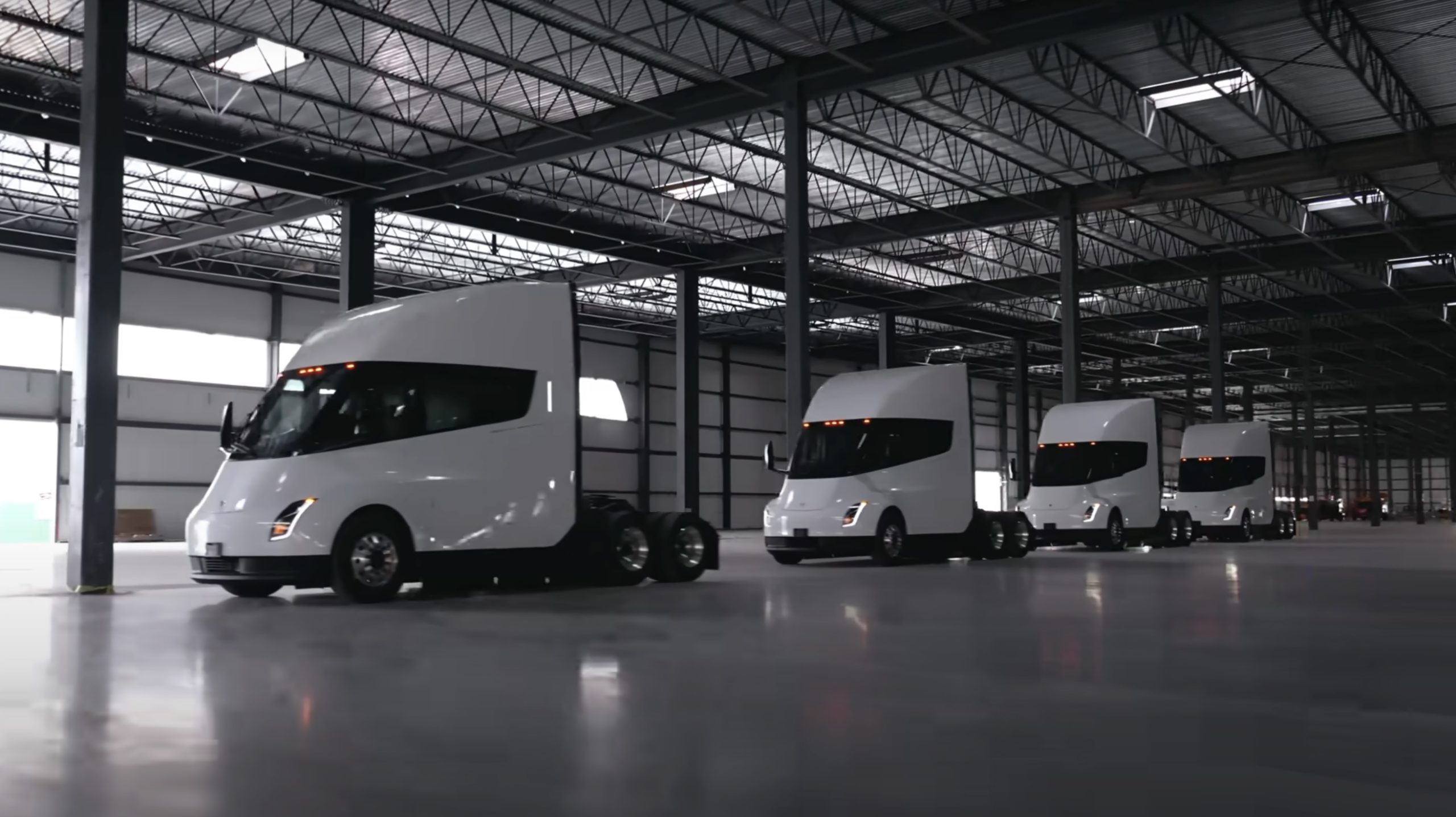
Tesla has landed a massive deal to expand its charging infrastructure for heavy-duty electric trucks — and not just theirs, but all manufacturers.
Tesla entered an agreement with Pilot Travel Centers, the largest operator of travel centers in the United States. Tesla’s Semi Chargers, which are used to charge Class 8 electric trucks, will be responsible for providing energy to various vehicles from a variety of manufacturers.
The first sites are expected to open later this Summer, and will be built at select locations along I-5 and I-10, major routes for commercial vehicles and significant logistics companies. The chargers will be available in California, Georgia, Nevada, New Mexico, and Texas.
Each station will have between four and eight chargers, delivering up to 1.2 megawatts of power at each stall.
The project is the latest in Tesla’s plans to expand Semi Charging availability. The effort is being put forth to create more opportunities for the development of sustainable logistics.
Senior Vice President of Alternative Fuels at Pilot, Shannon Sturgil, said:
“Helping to shape the future of energy is a strategic pillar in meeting the needs of our guests and the North American transportation industry. Heavy-duty charging is yet another extension of our exploration into alternative fuel offerings, and we’re happy to partner with a leader in the space that provides turnkey solutions and deploys them quickly.”
Tesla currently has 46 public Semi Charger sites in progress or planned across the United States, mostly positioned along major trucking routes and industrial areas. Perhaps the biggest bottleneck with owning an EV early on was charging availability, and that is no different with electric Class 8 trucks. They simply need an area to charge.
Tesla is spearheading the effort to expand Semicharging availability, and the latest partnership with Pilot shows the company has allies in the program.
The company plans to build 50,000 units of the Tesla Semi in the coming years, and with early adopters like PepsiCo, DHL, and others already contributing millions of miles of data, fleets are going to need reliable public charging.
🚨 Pilot working with Tesla to install and expand Semi Chargers is a perfect example of two industry leaders working together for the greater good.
As more commerce companies expand into EVs, Semi Charger will be more commonly available for electrified fleets, making efforts… pic.twitter.com/VPLIYyq15b
— TESLARATI (@Teslarati) January 27, 2026
Tesla is partnering with other companies for the development of the Semi program, most notably, a conglomeration with Uber was announced last year.
Tesla lands new partnership with Uber as Semi takes center stage
The ride-sharing platform plans to launch the Dedicated EV Fleet Accelerator Program, which it calls a “first-of-its-kind buyer’s program designed to make electric freight more affordable and accessible by addressing key adoption barriers.”
The Semi is one of several projects that will take Tesla into a completely different realm. Along with Optimus and its growing Energy division, the Semi will expand Tesla to new heights, and its prioritization of charging infrastructure.
Elon Musk
Elon Musk’s Boring Company opens Vegas Loop’s newest station
The Fontainebleau is the latest resort on the Las Vegas Strip to embrace the tunneling startup’s underground transportation system.
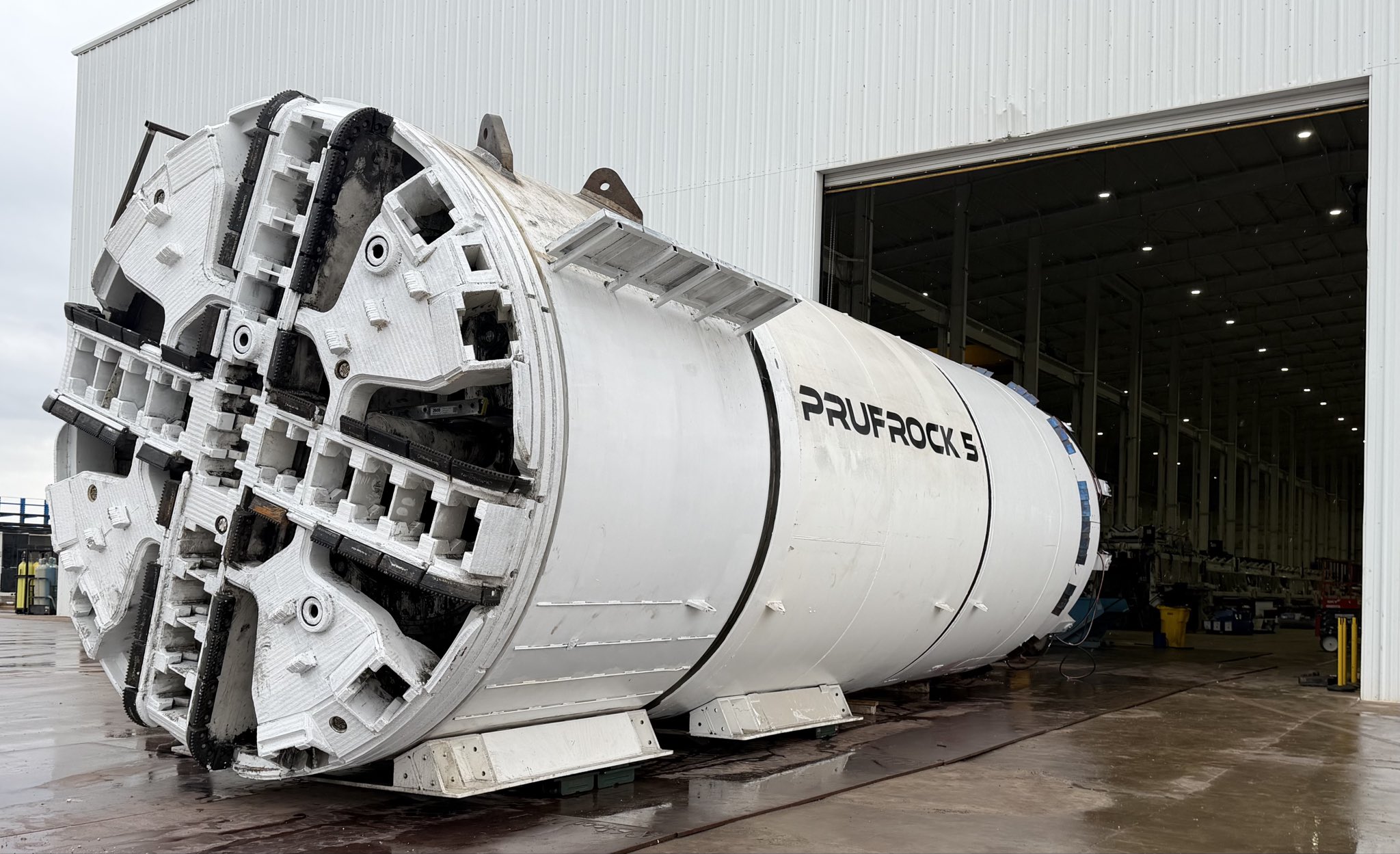
Elon Musk’s tunneling startup, The Boring Company, has welcomed its newest Vegas Loop station at the Fontainebleau Las Vegas.
The Fontainebleau is the latest resort on the Las Vegas Strip to embrace the tunneling startup’s underground transportation system.
Fontainebleau Loop station
The new Vegas Loop station is located on level V-1 of the Fontainebleau’s south valet area, as noted in a report from the Las Vegas Review-Journal. According to the resort, guests will be able to travel free of charge to the stations serving the Las Vegas Convention Center, as well as to Loop stations in Encore and Westgate.
The Fontainebleau station connects to the Riviera Station, which is located in the northwest parking lot of the convention center’s West Hall. From there, passengers will be able to access the greater Vegas Loop.
Vegas Loop expansion
In December, The Boring Company began offering Vegas Loop rides to and from Harry Reid International Airport. Those trips include a limited above-ground segment, following approval from the Nevada Transportation Authority to allow surface street travel tied to Loop operations.
Under the approval, airport rides are limited to no more than four miles of surface street travel, and each trip must include a tunnel segment. The Vegas Loop currently includes more than 10 miles of tunnels. From this number, about four miles of tunnels are operational.
The Boring Company President Steve Davis previously told the Review-Journal that the University Center Loop segment, which is currently under construction, is expected to open in the first quarter of 2026. That extension would allow Loop vehicles to travel beneath Paradise Road between the convention center and the airport, with a planned station located just north of Tropicana Avenue.
News
Tesla leases new 108k-sq ft R&D facility near Fremont Factory
The lease adds to Tesla’s presence near its primary California manufacturing hub as the company continues investing in autonomy and artificial intelligence.
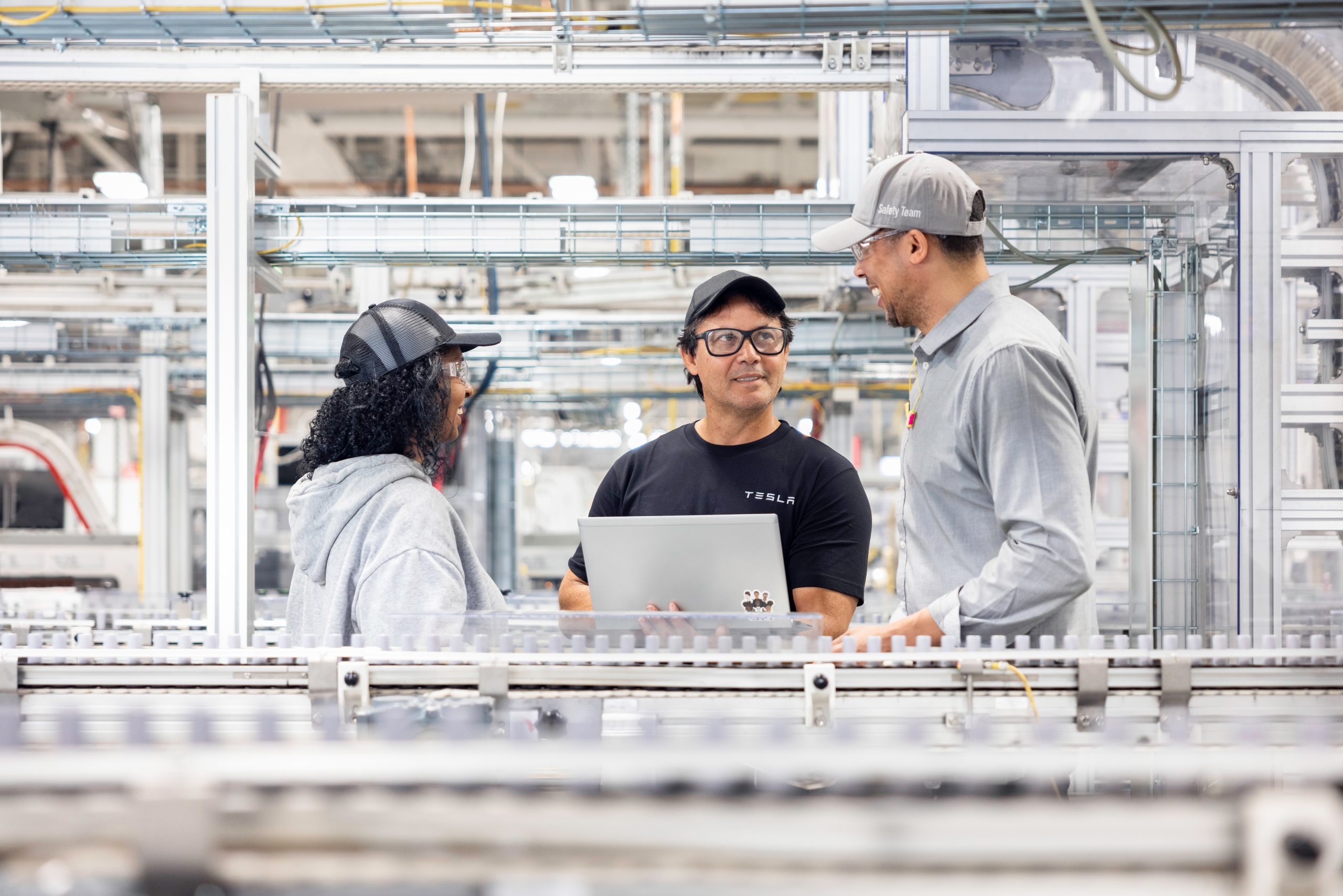
Tesla has expanded its footprint near its Fremont Factory by leasing a 108,000-square-foot R&D facility in the East Bay.
The lease adds to Tesla’s presence near its primary California manufacturing hub as the company continues investing in autonomy and artificial intelligence.
A new Fremont lease
Tesla will occupy the entire building at 45401 Research Ave. in Fremont, as per real estate services firm Colliers. The transaction stands as the second-largest R&D lease of the fourth quarter, trailing only a roughly 115,000-square-foot transaction by Figure AI in San Jose.
As noted in a Silicon Valley Business Journal report, Tesla’s new Fremont lease was completed with landlord Lincoln Property Co., which owns the facility. Colliers stated that Tesla’s Fremont expansion reflects continued demand from established technology companies that are seeking space for engineering, testing, and specialized manufacturing.
Tesla has not disclosed which of its business units will be occupying the building, though Colliers has described the property as suitable for office and R&D functions. Tesla has not issued a comment about its new Fremont lease as of writing.
AI investments
Silicon Valley remains a key region for automakers as vehicles increasingly rely on software, artificial intelligence, and advanced electronics. Erin Keating, senior director of economics and industry insights at Cox Automotive, has stated that Tesla is among the most aggressive auto companies when it comes to software-driven vehicle development.
Other automakers have also expanded their presence in the area. Rivian operates an autonomy and core technology hub in Palo Alto, while GM maintains an AI center of excellence in Mountain View. Toyota is also relocating its software and autonomy unit to a newly upgraded property in Santa Clara.
Despite these expansions, Colliers has noted that Silicon Valley posted nearly 444,000 square feet of net occupancy losses in Q4 2025, pushing overall vacancy to 11.2%.
